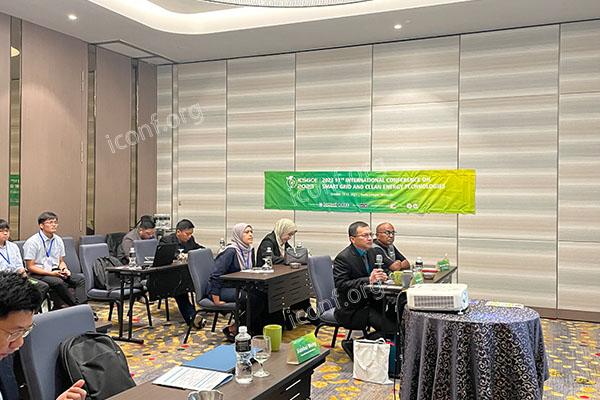Academic conferences are not only platforms for presenting research but also essential venues for networking, learning, and collaboration. Effective interaction at these events can open doors to new opportunities, feedback, and partnerships. Whether you are attending your first international conference or are a seasoned scholar, understanding how to interact professionally and productively is crucial.
Here’s a comprehensive guide on how to interact at academic conferences to make the most of your experience.

After a presentation or panel, there’s usually time for questions. This is your chance to engage directly with speakers:
Keep questions clear and specific – Focus on one point at a time.
Be respectful and constructive – Avoid challenging presenters in a confrontational way.
Relate the question to your work – Mention your research interest briefly to establish common ground.
If you're shy, consider writing your question down beforehand or submitting it via the conference app if available.
Coffee breaks, lunches, and social events are valuable moments to connect with peers and senior researchers:
Introduce yourself confidently – Name, institution, and research focus are enough to start.
Prepare a brief academic pitch – Be ready to explain your work in 30–60 seconds.
Exchange contact details – Academic business cards or QR codes are helpful.
Remember, these small conversations can lead to collaborations, job offers, or invitations to future events.
If you find a presentation interesting, don’t hesitate to approach the speaker afterward:
Start with a compliment or insightful comment about their work.
Ask follow-up questions or share your own related ideas.
Express interest in staying in touch, especially if you have similar research goals.
This shows genuine engagement and may lead to future academic exchanges.
With many events going hybrid or fully online, digital interaction matters too:
Participate in live chats or Q&A panels.
Use breakout rooms or virtual coffee chats to meet new people.
Join Slack channels or online communities associated with the conference.
Don’t treat virtual attendance as passive watching — be visible and present.
Strong interactions don’t end when the conference does. Following up is key to sustaining connections:
Send thank-you emails or LinkedIn messages to people you met.
Mention what you discussed to help them remember.
Share materials like your paper, poster, or slides, if relevant.
Staying in touch builds trust and keeps you on others’ radar for future research or academic projects.
Mastering the art of interaction at academic conferences can significantly boost your academic journey. Whether in-person or virtual, being active, respectful, and strategic in your communication will help you grow your academic network and refine your research.
To explore high-quality international conferences tailored to your field, visit [uconf.com] — a trusted platform for researchers looking to submit papers and attend curated academic events worldwide.